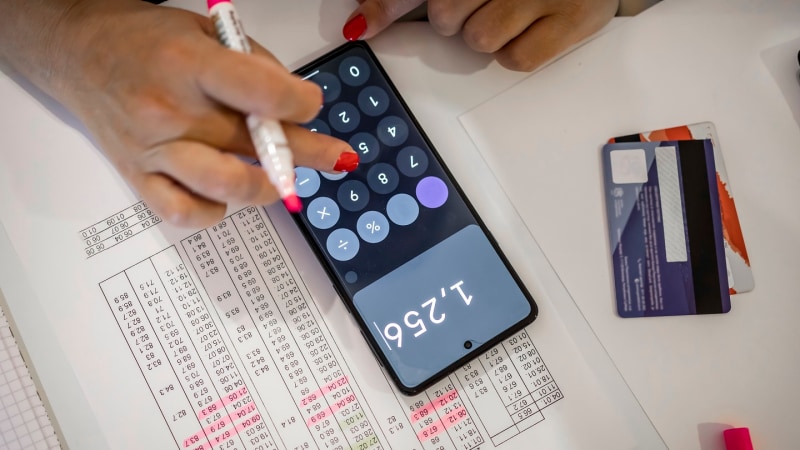How to budget your monthly spending with a credit card

Quick insights
- Credit cards may help you budget by organizing your purchases into different categories.
- Reviewing your spending categories is one way to create a realistic budget for your lifestyle.
- Setting up credit card alerts may help you keep track of overspending.
Budgeting is an important part of most people's financial lives. Creating a budget could help ensure you'll have enough to cover your expenses, save for a vacation and prepare for retirement. One tool you may not have thought of to assist with budgeting, however, is your credit card. Let's learn more about how to budget your monthly spending with credit cards.
Tracking your credit card spending
Before you create your budget, you'll likely want to know how much you're spending and where that money is going. One way to do this is through your credit card statements. Many credit cards categorize expenses, putting purchases into categories such as dining, groceries, travel and health and wellness. You can look at your statements by logging into your online banking account. Regularly reviewing these reports may help you identify places where you can cut back on spending, or help you identify any bad habits.
Depending on your issuer, you may be able to access further breakdowns of your spending through your online banking account. For instance, Chase credit card users can create custom reports for certain periods of time. This may be useful if you want to compare costs during different seasons or see how your expenses vary from the first half of the month to the second.
Review transactions
Once you come up with a budget, you can use your transactions to keep track of it. It's helpful to review your transactions and check your credit card balance at least as often as your budgeting period, whether that's weekly or monthly. This may help you stay on top of your spending — especially when you're first adjusting to budgeting with a credit card. Additionally, it might help you quickly catch any unauthorized transactions.
Using your card's special features
Many credit cards offer special features that you can use to help implement your budget. Some of these may include:
- Card alerts: There are a few different alerts that may help when budgeting with a credit card. You might be able to set up your account to send you notifications when you reach a certain balance, when you're approaching your credit limit or when your payments are due.
- Card lock: While the card lock feature is often used to freeze your card when it's lost, you can use it to curb your spending. This feature will usually prevent purchases and cash withdrawals, though recurring or scheduled payments may not be affected. You can often lock (and unlock) your card from your issuer's mobile app.
- Automatic payments: You might be able to keep track of your monthly bills, subscriptions and other recurring charges by setting up automatic payments on your credit card. That way the bill will be paid directly from your card so it will appear in your transactions. This can make budgeting easier by keeping all your spending in one place.
Benefits of budgeting with a credit card
Having an effective budget is beneficial to many people. A budget can help achieve both long- and short-term goals. Some of the reasons you may want to create a budget include:
- Avoiding debt: You may be able to avoid racking up credit card debt if you use a budget to curb overspending.
- Aiding with retirement: Your budget can potentially incorporate savings for your future retirement to help you build up a nest egg.
- Helps with emergencies: Setting aside emergency funds in your budget can help you be more prepared for things like expensive car repairs, job layoffs or health emergencies.
- Creating financial stability: Knowing what money you have coming in, what money you're spending and where, helps create financial stability.
The benefits specific to budgeting with a credit card may include:
- Building credit: If you're using your credit card to pay for things and track your spending, and are then paying off that balance each month, you're likely to see a positive effect on your payment history. This could potentially help raise your credit score over time.
- Earning rewards: If the credit card you're using is a rewards card, you can earn rewards even when you are sticking to your budget.
In summary
Budgeting can be an important part of your financial journey. Credit cards may be a good way for you to create and follow your budget, provided you stay on top of your spending and payments every month. You can use your transaction statements and other tools available to track and analyze your monthly spending with credit cards. Plus, you may find using a credit card to budget is beneficial in other ways, such as boosting your payment history or earning rewards.



